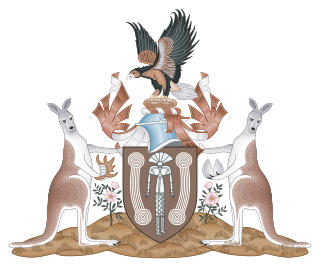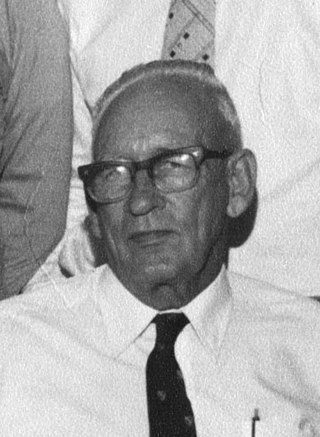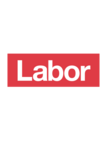
The Country Liberal Party of the Northern Territory (CLP), commonly known as the Country Liberals, is a centre-right political party in Australia's Northern Territory. In local politics, it operates in a two-party system with the Australian Labor Party (ALP). It also contests federal elections as an affiliate of the Liberal Party of Australia and National Party of Australia, the two partners in the federal coalition.
The Australia Party was a minor political party established initially in 1966 as the Liberal Reform Group. As the Australia Party, it became influential, particularly in the landmark 1972 federal election when its preferences assisted the Australian Labor Party to victory—ending 23 years of Liberal/Country Coalition government.

The Legislative Council, or upper house, is one of the two chambers of the Parliament of South Australia. Its central purpose is to act as a house of review for legislation passed through the lower house, the House of Assembly. It sits in Parliament House in the state capital, Adelaide.
This is a list of members of the Western Australian Legislative Council between 22 May 2001 and 21 May 2005:

Australian Greens SA is a green political party located in the Australian state of South Australia. It is a member of the federation of the Australian Greens party.

The Victorian Greens, officially known as the Australian Greens Victoria, is the Victorian state member party of the Australian Greens, a green political party in Australia.

The 1961 Australian federal election was held in Australia on 9 December 1961. All 122 seats in the House of Representatives and 31 of the 60 seats in the Senate were up for election. The incumbent Liberal–Country coalition led by Prime Minister Robert Menzies defeated the opposition Labor Party under Arthur Calwell, despite losing the two-party-preferred popular vote. In his first election as Labor leader, Calwell significantly reduced the Coalition's margin, gaining 15 seats to leave the government with only a two-seat majority. This was the first and only time that a Federal Government won a sixth consecutive term in office.

The Northern Territory Legislative Council was the partly elected governing body of the Northern Territory of Australia from 1947 until its replacement by the fully elected Northern Territory Legislative Assembly in 1974.
The Australian Capital Territory House of Assembly was the main elected representative body of the Australian Capital Territory between 1975 and 1986, when preparations began to be made for the granting of self-government to the Territory. It served a largely advisory role, with most powers over the Territory still lying in the hands of the relevant federal minister through the life of the Assembly.

The 2008 Western Australian state election was held on Saturday 6 September 2008 to elect 59 members to the Legislative Assembly and 36 members to the Legislative Council. The incumbent centre-left Labor Party government, in power since the 2001 election and led since 25 January 2006 by Premier Alan Carpenter, was defeated by the centre-right Liberal Party opposition, led by Opposition Leader Colin Barnett since 6 August 2008.
This is a list of members of the Western Australian Legislative Council from 22 May 1910 to 21 May 1912. The chamber had 30 seats made up of ten provinces each electing three members, on a system of rotation whereby one-third of the members would retire at each biennial election. Prior to the 1910 election, the Council had thought of itself as entirely independent from party politics, but with the election of Labor members to the Council and Labor's vigorous campaign at the 1911 election for the Legislative Assembly, many of its members joined the newly formed Liberal Party which had emerged from the various National Political Leagues and Liberal Leagues.
This is a list of members of the Western Australian Legislative Council from 22 May 1916 to 21 May 1918. The chamber had 30 seats made up of ten provinces each electing three members, on a system of rotation whereby one-third of the members would retire at each biennial election.

Rupert James Kentish was an Australian politician. He was a Country Party member of the Northern Territory Legislative Council from 1968 to 1974 and a Country Liberal Party member of the Northern Territory Legislative Assembly from 1974 to 1977.

A general election for the 56th Parliament of New South Wales (NSW) was held on Saturday 28 March 2015. Members were elected to all 93 seats in the Legislative Assembly using optional preferential voting. Members were also elected to 21 of the 42 seats in the Legislative Council using optional preferential proportional representation voting. The election was conducted by the New South Wales Electoral Commission.

The 2017 Western Australian state election was held on Saturday 11 March 2017 to elect members to the Parliament of Western Australia, including all 59 seats in the Legislative Assembly and all 36 seats in the Legislative Council. The eight-and-a-half-year two-term incumbent Liberal–WA National government, led by Premier Colin Barnett, was defeated in a landslide by the Labor opposition, led by Opposition Leader Mark McGowan.
Periodic elections for the Tasmanian Legislative Council were held on 2 May 2009. The three seats up for election were Derwent, held by Labor MLC Michael Aird; Mersey, held by retiring independent MLC Norma Jamieson; and Windermere, held by independent MLC Ivan Dean. These seats were last contested in 2003.

The 2019 New South Wales state election was held on Saturday 23 March 2019 to elect the 57th Parliament of New South Wales, including all 93 seats in the Legislative Assembly and 21 of the 42 seats in the Legislative Council. The election was conducted by the New South Wales Electoral Commission (NSWEC).

The 2022 Victorian state election was held on Saturday, 26 November 2022 to elect the 60th Parliament of Victoria. All 88 seats in the Legislative Assembly and all 40 seats in the Legislative Council were up for election at the time the writs were issued, however the election in the district of Narracan was deferred due to the death of a candidate.
This is a list of members of the Northern Territory Legislative Council from 26 October 1968 to 23 October 1971.

The 1965 Northern Territory legislative election was held on 30 October 1965 to elect eight members of the partly elected Northern Territory Legislative Council, the governing body of the Northern Territory of Australia.














